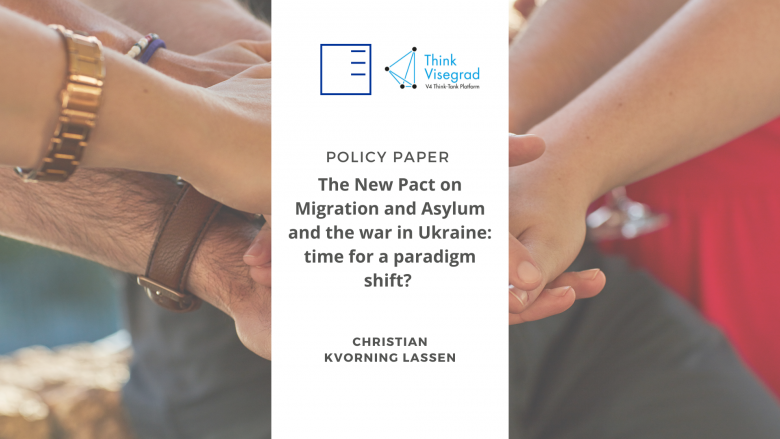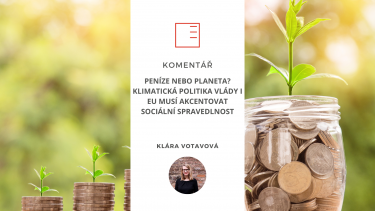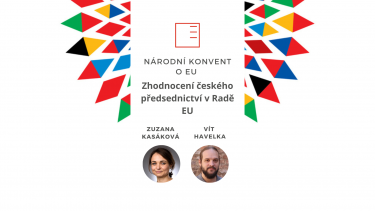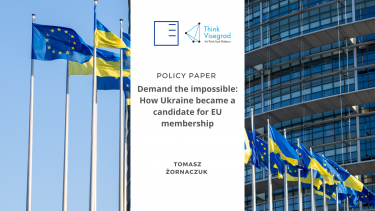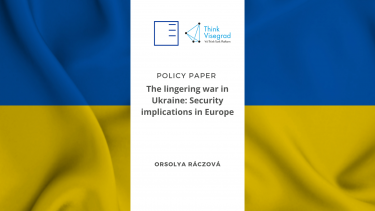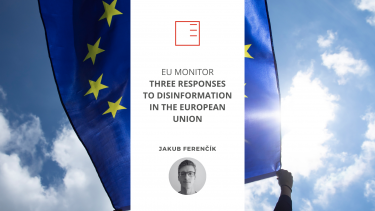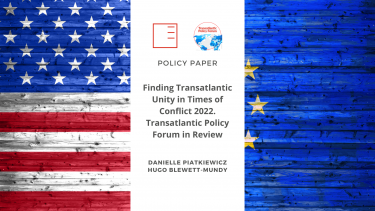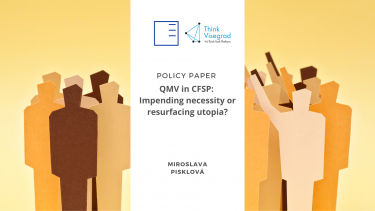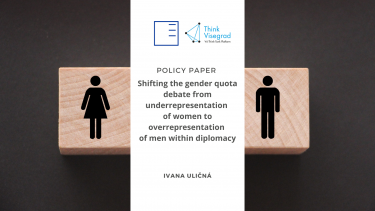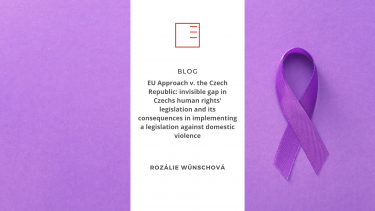POLICY PAPER | The New Pact on Migration and Asylum and the war in Ukraine: time for a paradigm shift?
Christian Kvorning Lassen, deputy director and head of research at the EUROPEUM, writes in his policy paper about the new pact on migration and asylum. In his article, he reminds that migration remains highly politicized.
Show moreBLOG | Money or planet? Government Climate Policy | EU must emphasise social justice
When the European Parliament finally confirmed the ban on the sale of cars with internal combustion engines in the EU in 2035, it sparked a new round of a well-known debate in the Czech Republic. Is climate and environmental protection worth the threat to prosperity in countries with strong car industries like the Czech Republic? Klára Votavová discussed this topic.
Show moreNational Convention on the EU | Background material: Evaluation of the Czech Presidency of the Council of the EU
Our research associate Zuzana Kasáková and our senior researcher Vít Havelka prepared background material for the Round Table of the National Convention on the EU on the topic Evaluation of the Czech Presidency. Three main questions are put to the Round Table: How successful has the Czech Reublic been in implementing its Presidency priorities? How successful was the Czech Republik in carrying out its presidency in terms of organisation? Has the Czech Republic been successful in promoting its membership in the European Union?
Show more

POLICY PAPER | Demand the impossible: How Ukraine became a candidate for EU membership
Tomasz Żornaczuk writes that Russia's aggression in Ukraine has led to major changes in EU enlargement in 2022. The most significant of these was the change in the Union's geographical position after Ukraine and Moldova were granted EU candidate status and Georgia was granted the prospect of accession. The move seemed almost impossible a few weeks before it became the new political reality in June 2022.
Show morePOLICY PAPER | The lingering war in Ukraine: Security implications in Europe
Orsolya Ráczová writes that it is difficult to predict the long-term effects of war with certainty, yet it is essential to be aware of the fact that the longer a war continues, the more dire its long-term impact becomes. The era of relative peace and stability in Europe is over, security should no longer be taken for granted. Europe needs to rethink its security at EU, NATO and Member State level. It is also essential to strike the right balance to ensure security at home while providing much-needed support to Ukraine.
Show moreEU MONITOR | THREE RESPONSES TO DISINFORMATION IN THE EUROPEAN UNION
Disinformation and foreign interference have been concerns in global politics for centuries, but social media algorithms have made the current threat more dire as they amplify content based on human frailties such as our obsession with negativity and outrage. Russian interference in the 2016 US federal election and other elections and referenda in at least twenty countries between November 2016 and April 2019, including the Brexit referendum, the French and German elections, and the Ukrainian power grid cyber-attacks, have highlighted the potential for foreign governments to alter the results of an election or undermine democracies using social media and other means. Writes Jakub Ferenčík in his last EU MONITOR.
Show more PDF
POLICY PAPER: Finding Transatlantic Unity in Times of Conflict 2022. Transatlantic Policy Forum in Review
Our researchers Danielle Piatkiewicz and Hugo Blewet-Mundy have written a policy paper on "Finding Transatlantic Unity in Times of Conflict 2022. Transatlantic Policy Forum in Review" which aims to outline action points and proposals that the Transatlantic Partnership should adopt.
Show more PDFPOLICY PAPER | QMV in CFSP: Impending necessity or resurfacing utopia?
Miroslava Pisklová writes about a discussion on potential broadening of the qualified majority voting (QMV) system to more of the remaining policy areas in the Council of the EU in which it is not yet used, namely the EU´s Common Foreign and Security Policy (CFSP) that has recently gained momentum. This publication aims to analyse the advantages and disadvantages of introduction of the QMV in CFSP of the EU with a focus on the potential impact on smaller member states.
Show morePOLICY PAPER | Shifting the gender quota debate from underrepresentation of women to overrepresentation of men within diplomacy
Ivana Uličná writes about the fact that even though some progress has been made towards gender equality in diplomacy, women remain underrepresented in ambassadorial positions worldwide. Quotas have been effective in boosting nominal representation of women but critiques focused on quotas being tokenistic and harming meritocracy place a double burden on women. However, even the current system is not meritocratic, as men benefit from a historical advantage and assumed competence, while women must justify their presence, prove their worth and disprove gender stereotypes.
Show moreBLOG: EU Approach v. the Czech Republic: invisible gap in Czechs human rights' legislation
Rozálie Wünschová writes in her blog that the Czech Republic is one of only two EU countries where corporal punishment of children is still legally permitted. Together with Slovakia, this puts the Czech Republic behind not only the Nordic countries, where corporal punishment was banned in the last century but also countries such as Turkmenistan, which adopted protective legislation in 2007.
Show more PDFStaroměstské náměstí 4/1
Prague 1 - Staré Město
110 00
tel.: +420 212 246 552
email: europeum@europeum.org
https://www.europeum.org
